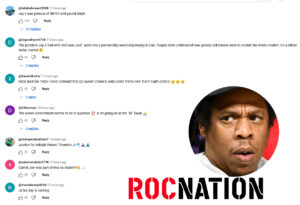Despite the success of the MeToo movement in Hollywood, the music industry, particularly hip-hop, continues to struggle with accountability and silence surrounding sexual violence. Diddy’s recent trial highlights systemic issues in addressing abuse, calling into question the culture that protects powerful figures.
The Challenge of Establishing a MeToo Movement in Hip-Hop After Diddy's Conviction

The Challenge of Establishing a MeToo Movement in Hip-Hop After Diddy's Conviction
The recent trial of Sean "Diddy" Combs raises critical questions about the representation of sexual abuse within the hip-hop industry and the cultural challenges in addressing such issues.
After the conviction of Sean "Diddy" Combs on lesser charges related to sexual misconduct, the hip-hop industry finds itself at a crossroads, reflecting on its failures to confront pervasive issues of abuse and harassment. Combs' trial revealed troubling dynamics in his relationships, detailing instances of control, abuse, and the coercion of his partner, Cassie Ventura. As discussions around the verdict unfold, many in the hip-hop community are questioning why it has taken so long to see accountability, especially in light of the Hollywood MeToo movement that gained momentum nearly a decade ago.
Critics argue that the hip-hop industry, while being a landscape for expression and empowerment, has simultaneously maintained a culture of silence around sexual misconduct. The testimonies of women like Cristalle Bowen, a rapper and activist, underscore the challenges female artists face in an environment that often prioritizes male dominance and financial gain over victims' voices. As Bowen articulates, the industry is rife with economic pressures that discourage women from speaking out against powerful figures.
Prominent figures in the movement to eradicate sexual violence in music, such as Caroline Heldman from the Sound Off Coalition, claim that an entrenched culture protects abusers while silencing victims. Non-disclosure agreements (NDAs) are criticized for being exploited to stifle revelations of abuse, leaving survivors vulnerable and without recourse.
Historical factors influence this dynamic as well. Hip-hop emerged as a cultural response to systemic oppression faced by Black communities, serving as an avenue for minority voices but simultaneously complicating how abuse is perceived within that narrative. Sociologist Katheryn Russell-Brown discusses "black protectionism," suggesting that any accusations against prominent Black figures evoke suspicion and defensiveness rooted in racial and social dynamics.
Despite these challenges, there are signs that change may be on the horizon. Recent legislative changes, like New York’s Adult Survivors Act, allow victims to come forward regardless of the timing of their claims. Discussion within the music industry is shifting, with hopes that practices from Hollywood's MeToo movement may begin to be adopted in music. Advocates are pushing for more protective measures for artists against harassment and improved accountability mechanisms.
However, the ability of the industry to enact genuine change remains uncertain. The verdict against Combs has led to a re-examination of attitudes towards abusers in music and how their actions impact creative communities. Yet, industry voices caution that Combs’ case cannot be seen in isolation; it is a symptom of a broader issue that calls for introspection and cultural transformation.
Until there is a significant shift in attitudes and policies, the hip-hop community may continue to grapple with its legacy of silence and complicity in the face of abuse. Advocates stress that true progress requires not just awareness but also commitment and tangible actions to ensure that the industry becomes a safer space for all its artists and creators.




















